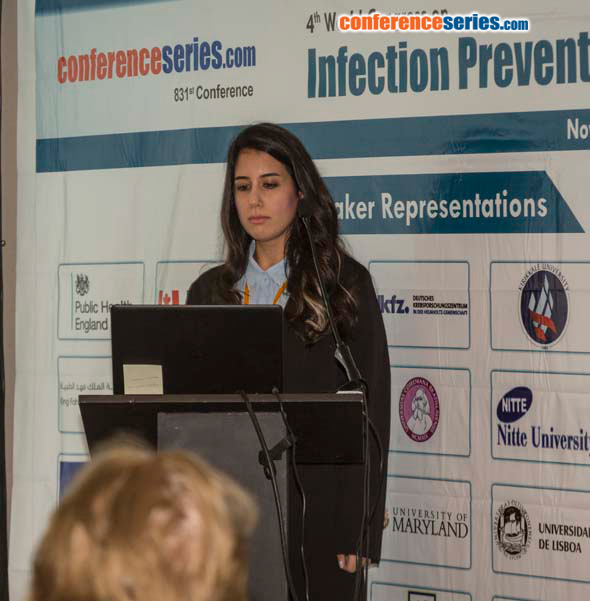
Bahar Onaran1, Gizem Copuroglu2, Naim Deniz Ayaz2, Muammer Goncuoglu1, Fatma Seda and Bilir Ormanci1
1Ankara University, Turkey
2Kirikkale University, Turkey
Title: Biocontrol of E. coli O157:H7 in RTE salad using lytic bacteriophage
Biography
Biography: Bahar Onaran1, Gizem Copuroglu2, Naim Deniz Ayaz2, Muammer Goncuoglu1, Fatma Seda and Bilir Ormanci1
Abstract
E. coli O157:H7 is a food-borne pathogen of concern due to the serious clinical outcomes. Options for controlling bacterial pathogens in raw and ready-to-eat foods are limited but one is to use bacteriophages. The use of specific virulent bacteriophages for E. coli O157:H7 emerges as an important method in order to reduce E. coli O157:H7 load in foods. It is reported that the usage of specific virulent bacteriophages as a biocontrol and decontamination agent in foods, do not cause any side effects on human health, as well. This study was aimed to find out the efficiency of lytic bacteriophage against E. coli O157:H7 in ready-to-eat salads. For this purpose, E. coli O157:H7 NCTC12900 (EC00) and nalidixic acid resistant E. coli O157:H7 ATCC 43895 (naEC95) were used as the model bacterium in decontamination trials of Italian salads which are consumed without any heating process and include beans, carrots, potatoes, pickled cucumbers, salami, and mayonnaise. Phage M8AEC16 which was classified in Myoviridae family previously was used as biocontrol agent. Major reductions of viable E. coli O157:H7 counts reached up to 2.7 log cfu/g. In conclusion, results of this study showed that, phage M8AEC16 is an important biocontrol agent in decontamination of E. coli O157:H7 in RTE salads.




